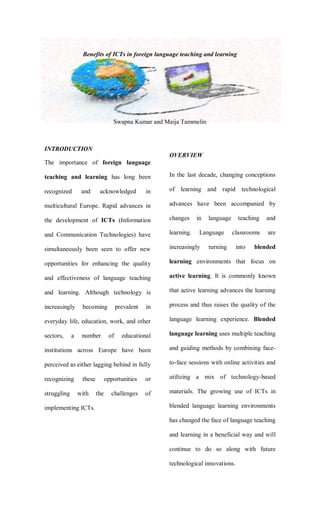This document discusses Emilia Ferreiro's views on digital literacy and ICTs. It makes three key points:
1) ICTs like computers and the internet have revolutionized communication and introduced new forms of literacy, though new technologies have always faced resistance from educators at first.
2) While ICTs can expand access to knowledge, there are political concerns about who controls the knowledge promoted through these technologies, with organizations like the World Bank seeking to define education in economic rather than intellectual terms.
3) There is doubt that ICTs alone can solve illiteracy in developing countries, as globalization and the knowledge promoted through these technologies may primarily serve first-world economic interests rather than empower

